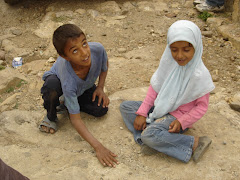I came across an interesting piece in Foreign Policy a while back by Moises Naim titled "Can the World Afford a Middle Class?" it blamed a growing middle class for rising food prices. I'm not sure why the novelty of the theory also suffices for evidence in this case, but the argument can be summed up in the following excerpt:
"These protesters are the most vociferous manifestations of a global trend: We are all paying more for bread, milk, and chocolate, to name just a few items. The new consumers of the emerging global middle class are driving up food prices everywhere. The food-price index compiled by The Economist since 1845 is now at an all-time high; it increased 30 percent in 2007 alone. Milk prices were up more than 29 percent last year, while wheat and soybeans increased by almost 80 and 90 percent, respectively. Many other grains, like rice and maize, reached record highs. Prices are soaring not because there is less food (in 2007, the world produced more grains than ever before), but because some grains are now being used as fuel and because more people can afford to eat more."
Not ONCE in this article does Naim mention oil, which, because it is used in everything from the production of food to its transportation and storage, will cause food prices to increase when its own price increases. Also, as the international financial institutions try to 'restructure' developing economies they usually encourage (or force) the cultivation of cash crops over subsistence crops meaning that instead of growing their own food many people are now growing exotic flowers and other luxury crops to export to Europe and the US. They're paying more for their food (and rioting about it as the author alludes to above) because the food they now get is often nutritionally inferior to what they would have been growing themselves so now they have to buy more of it. (For an example of this read Tim Mitchell's book Rule of Experts which details this process in Egypt).
Then, I saw the front page of today's NYT, which reads: "Rising Inflation Creates Unease in Middle East" and contains the following evaluation of food prices:
"Even as it enriches Arab rulers, the recent oil-price boom is helping to fuel an extraordinary rise in the cost of food and other basic goods that is squeezing this region’s middle class and setting off strikes, demonstrations and occasional riots from Morocco to the Persian Gulf.
The inflation has many causes, from rising global demand for commodities (a nod here to Naim) to the monetary constraints of currencies pegged to the weakening American dollar. But one cause is the skyrocketing price of oil itself, which has quadrupled since 2002. It is helping push many ordinary people toward poverty even as it stimulates a new surge of economic growth in the gulf.
“Now we have to choose: we either eat or stay warm. We can’t do both,” said Abdul Rahman Abdul Raheem, who works at a clothing shop in a mall in Amman and once dreamed of sending his children to private school. “We’re not really middle class anymore; we’re at the poverty level.”
I'm also suspect of why an increase in the demand for soybeans means more people are middle class. Is the new definition of middle class "those not requiring food aid from Oxfam"? I would hardly consider someone who has to worry about the rising price of milk "middle class." Perhaps a better headline for Naim's article would be: "What if all these poor people start eating more food, becoming educated and demanding more rights from their sweatshop foremen?"
Monday, February 25, 2008
Subscribe to:
Post Comments (Atom)

No comments:
Post a Comment